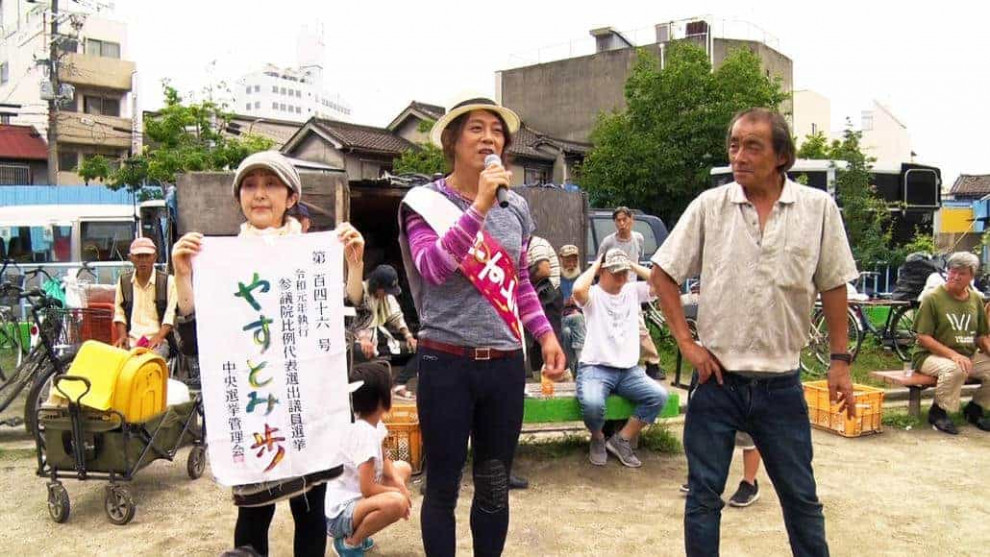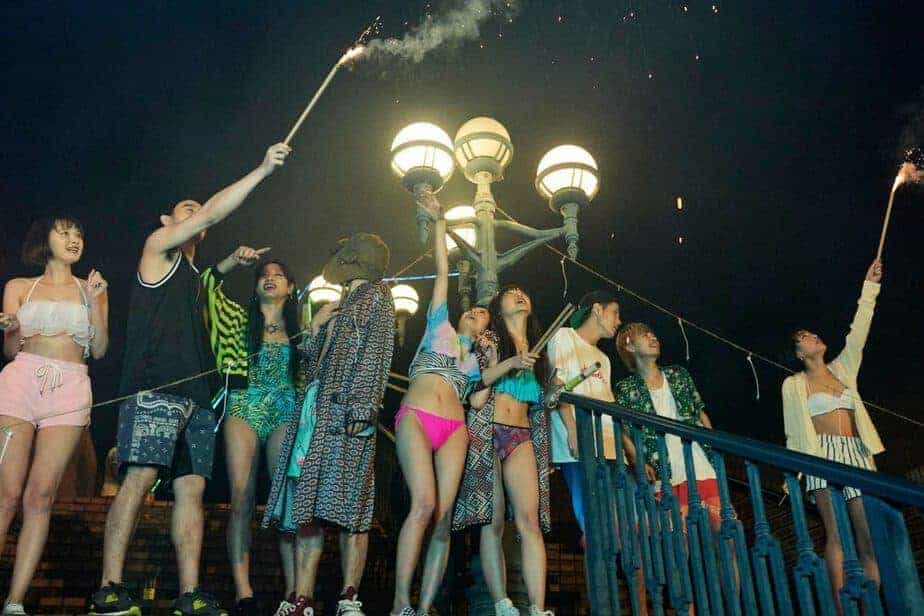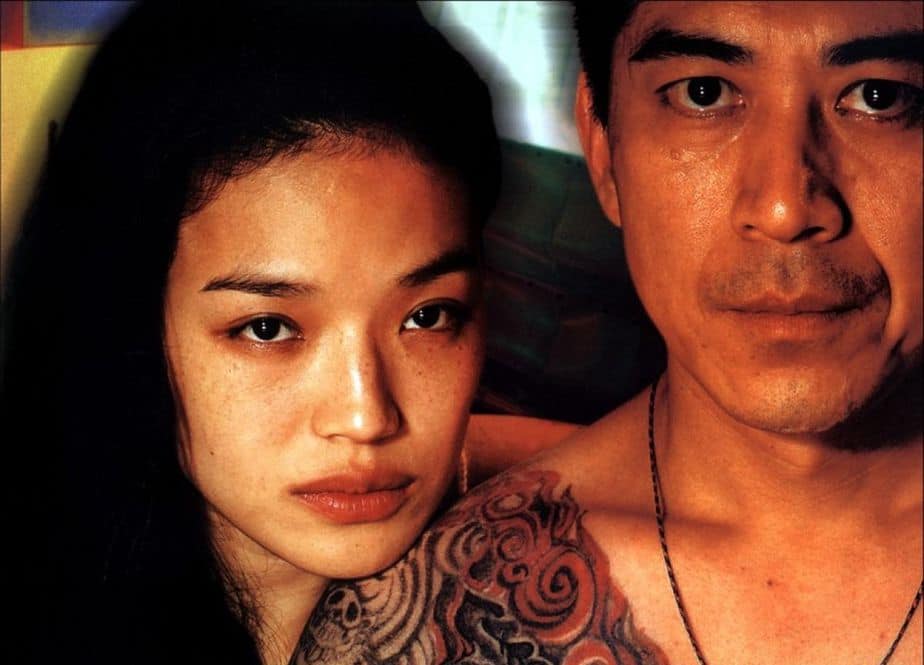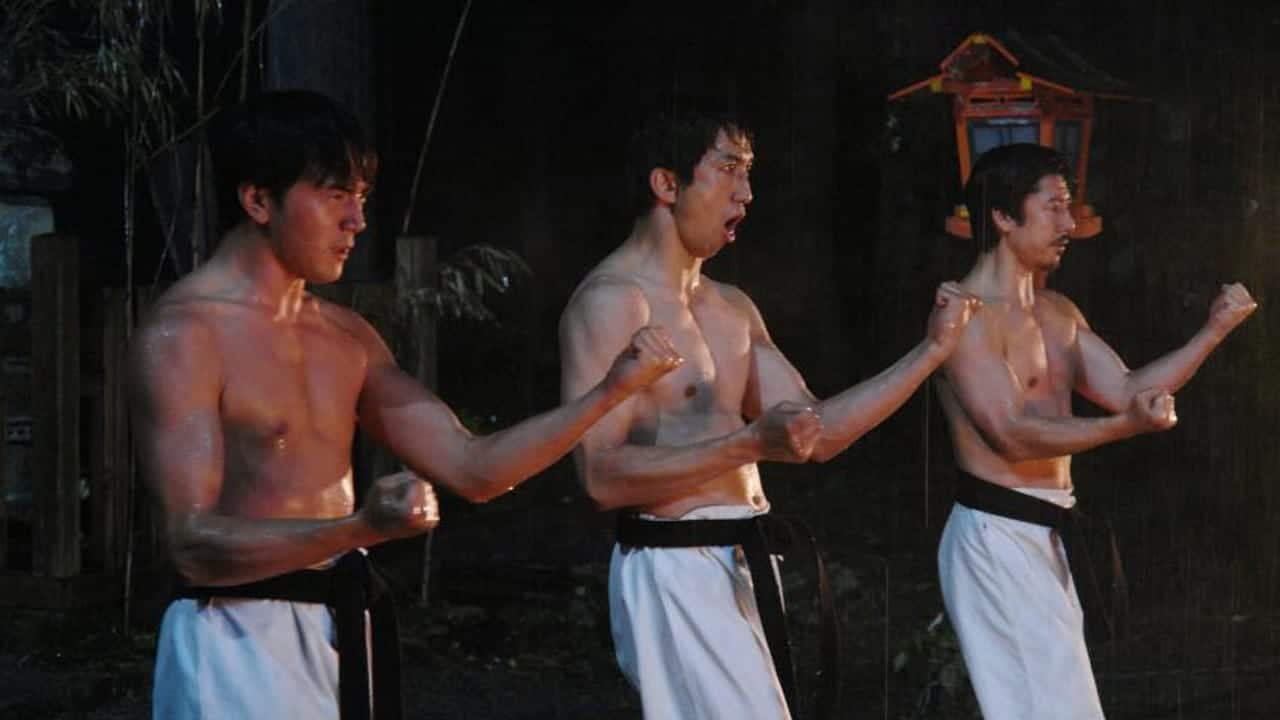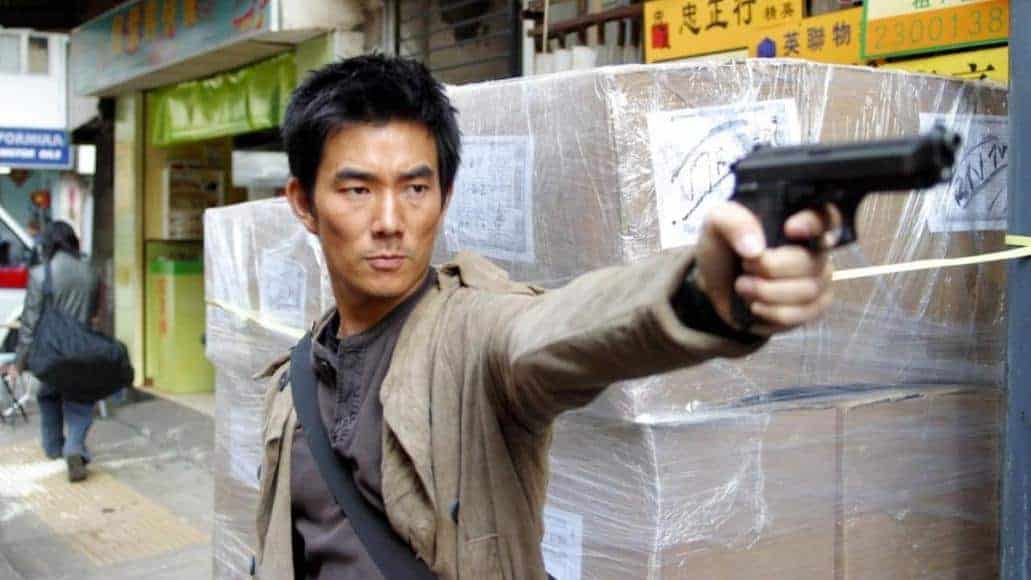Ok, I have to admit that when I saw that the documentary was 270 minutes, I thought “what a bother”, and the beginning of the film, where Kazuo Hara lets his audience know that there is an additional scene after the ending titles, did not help, even if it made me laugh a bit. However, I was surprised to come across a film that actually retains the interest, if not for the whole of its duration than definitely for the most part, as the band of extremely unlikely candidates for the Japanese diet, and particularly Ayumi Yasutomi who is the main point focus, are more than interesting.
“Reiwa Uprising” is screening at the International Film Festival Rotterdam

Kazuo Hara follows Ayumi Yasutomi, a cross-dressing Tokyo University professor, as she embarks on a campaign for the Diet's Upper House, as member of the Reiwa Shinshengumi, a political party led by Taro Yamamoto, a former actor whose 63 credits include “Battle Royale” and “Izo”. The leader, however, is not the most unusual aspect of this organization. Apart from the fact that its 10 members who are running in the elections were summoned just days or even hours before the first official public assembly, the unique thing is the actual composition of the party. Apart from the two aforementioned, there is a former 7-11 owner, an ex-member of an environmental NGO, a former stockbroker, a man who is politically active in Okinawa but he is running in Tokyo, an ex-employee of Tokyo Electric Power (the company in charge of the nuclear in Kanto region), and also former deputy representative of the North Korean abduction liaison, a person suffering from cerebral palsy and another from Lou Gehrig's disease, and a single mother of two kids who used to be homeless and was recently fired from the part-time job she kept for 17 years. With a first look, the composition looks extremely eccentric, but it is soon revealed that Yamamoto's picking of them was quite smart, as each knows a section quite well (the 7-11 man commerce, the ex stockbroker finance etc) and every one of them is highly intelligent, dedicated, outspoken, and most of all, sick of the current system and the particular government.

Eccentricity, however, is not absent at all, and professor Yasutomi is probably the most eccentric of them, as we watch him campaigning on streets, occasionally kicked out by security guards and policemen, dressed in woman's clothes and with the accompaniment of a horse. The incredible part, however, is that he is so educated, eloquent and dedicated that his image soon becomes irrelevant to the whole narrative, while the fact that he has to face so many obstacles (including the weather and the lack of audience) makes him appear almost heroic. His main points, about making a world that children would feel safe and happy all the time, the fact that people should pay more attention to the minorities, since they are those that suffer first and most from any errors in the system, the role of traditional media (that did not cover the campaign almost at all) and of the new media (YouTube, social media) that provided an alternative source of exposure for those who were snubbed before, are all very well thought, expressed and in essence, almost impossible to argue.

Hara however, does not just portray the politician, but also the individual, as we see her being overwhelmed and to the point of tears a number of times, not to mention extremely angry on one occasion.
Evidently, with so much footage (also includes an interview Hara had with her a couple of years before when she was running for Tokyo mayor, various Youtube videos of her and the party etc.) the portrait could not but be complete, but the great thing about Hara's handling of his material is that he never lets the entertainment aspect get away from the screen, a true feat for such a long movie. (He actually mentions in the beginning that he wants to do a fun movie because otherwise no one will want to see it). To do so, apart from the undeniable appeal of all the candidates, all of which he interviews, Hara has also done a great job at the editing department, implementing a quite fast pace, while the concept of following a political campaign in all details, from beginning to end, adds a note of originality to the film. Furthermore, the fact that both Yasutomi and the whole party champion the rights of the disabled and the marginalized and are actually “members” of these social groups adds another level of sincerity and originality in the film.
Not much more to say, if you have four and a half hours to spend and you enjoy sociopolitical documentaries, do yourselves a favor and watch “Reiwa Uprising”, it is a truly great documentary.


